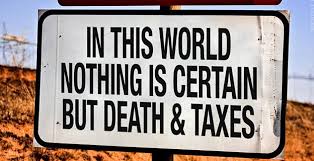
The Guvm’nt giveth, and the IRS taketh away!
IRS Guidance: No Tax Deductions Allowed for PPP-Paid Expenses
On April 30, the IRS released guidance providing that Paycheck Protection Program (PPP) loan borrowers may not deduct costs that are paid for with loan proceeds that are forgiven under the Coronavirus Aid, Relief, and Economic Security (CARES) Act.
The Paycheck Protection Program enacted by the CARES Act allows small businesses to apply for loans to be used for payroll costs and certain other types of expenses. The CARES Act, as supplemented by regulatory guidance, also provides that a business may have all or a portion of such a loan forgiven if it uses at least 75 percent of the proceeds for payroll costs, and the remainder, if any, for payments of interest on mortgage obligations incurred before February 15, 2020, payments of rent under lease agreements entered into before the same date, and payments for utilities for which service began before that date.
The CARES Act goes on to provide that any forgiveness of a PPP loan is not taxable to the borrower, even if it otherwise would be considered cancellation of debt income.
Since the CARES Act was signed into law, there has been a debate over whether business expenses for which subsequently forgiven loan proceeds are used can be deducted. If so, that would effectively result in a double tax benefit – a business could deduct those expenses and then also have the forgiven loan proceeds that paid for those expenses excluded from income.
The IRS settled this debate yesterday by issuing Notice 2020-32, which provides that no deduction is allowed to a business for an otherwise-deductible expense if the payment of the expense results in the forgiveness of a covered PPP loan, and the income associated with that forgiveness is excluded from the borrower’s gross income pursuant to the CARES Act.
While the matter is settled for now, and PPP loan borrowers should assume going forward that they cannot deduct any expenses relating to PPP loan amounts that are forgiven, Congress may still change this result by legislation. After the IRS notice was released, U.S. Senate and House tax committee leaders expressed their belief that the IRS guidance is contrary to congressional intent and that Congress might act to clarify its intent in subsequent COVID-19-related bills.
